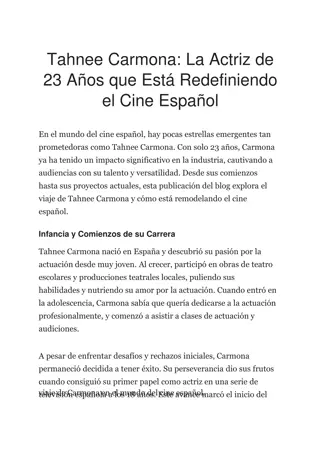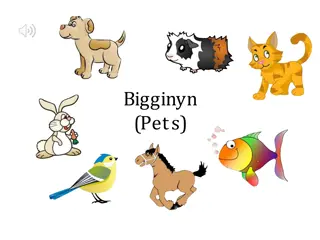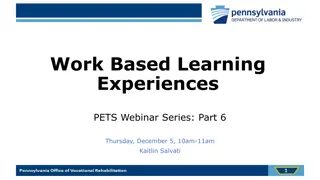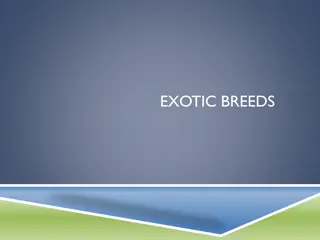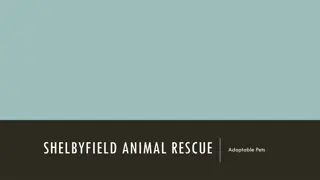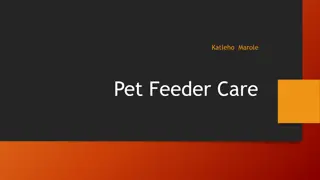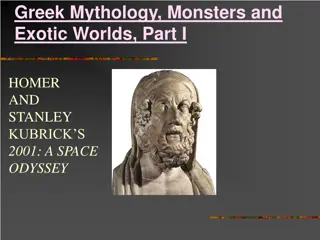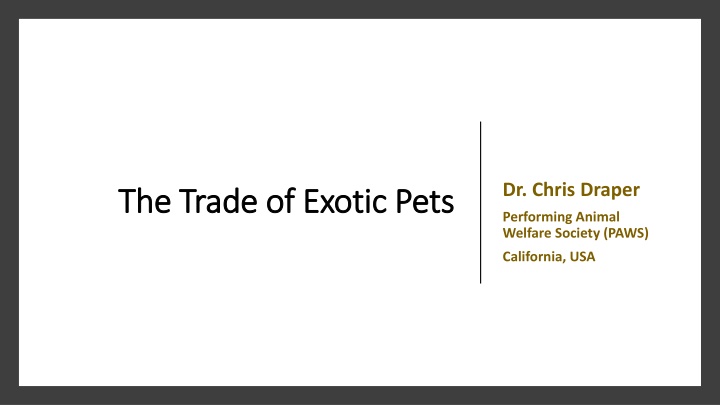
The Welfare of Exotic Pets in the International Wildlife Trade
This presentation delves into the complex issues surrounding the trade of exotic pets, shedding light on both legal and illegal aspects. Dr. Chris Draper from the Performing Animal Welfare Society discusses the challenges faced in ensuring the well-being of exotic animals throughout the supply chain, emphasizing the need for improved welfare standards and ethical considerations.
Download Presentation

Please find below an Image/Link to download the presentation.
The content on the website is provided AS IS for your information and personal use only. It may not be sold, licensed, or shared on other websites without obtaining consent from the author. If you encounter any issues during the download, it is possible that the publisher has removed the file from their server.
You are allowed to download the files provided on this website for personal or commercial use, subject to the condition that they are used lawfully. All files are the property of their respective owners.
The content on the website is provided AS IS for your information and personal use only. It may not be sold, licensed, or shared on other websites without obtaining consent from the author.
E N D
Presentation Transcript
Dr. Chris Draper The Trade of Exotic Pets The Trade of Exotic Pets Performing Animal Welfare Society (PAWS) California, USA
International Wildlife Trade $100s of billions per year Growing Uses: Food Medicine Ornaments Entertainment Research Pets
International Wildlife Trade Legal trade CITES $320 billion 2.2 million reptiles 34,000 mammals Ensure that trade does not affect survival of species
International Wildlife Trade Illegal trade Organised crime and terrorism $260 billion
Scale of the Issue E.g. UK 30-40 million fish 700,000 reptiles 700,000 caged birds Underestimates? 8m reptiles and amphibians
Scale of the Issue 1,796 adverts of exotics for sale in UK (2017) 53 species of reptile 37 species of bird 28 species of mammal 7 species of amphibian RSPCA rescues more than >4,000 exotics each year in England and Wales
What is an Exotic Pet? Domesticated vs. non-domesticated / wild Captive breeding vs. wild capture Availability does not equate to ease of keeping Rarity and novelty are significant drivers of demand
Welfare of Exotic Pets Need to consider welfare throughout the supply chain: Capture including non- target animals Captive-breeding Transport Holding Point of sale Life as a pet in a domestic environment Abandonment and rescue
Welfare of Exotic Pets Need to consider welfare throughout the supply chain: Intensity and duration of suffering Scale of suffering number of animals experiencing Mortality WC reptiles up to 90% Up to 75% per year when kept as pets Direct vs indirect impacts Death Sublethal effects Dependent young Social structure Culture
Welfare of Exotic Pets Knowledge and standards Wide range of sources of information E.g. red-eared terrapin water temperature 24 - 27 c 30 - 35 c 23 c 24 - 28 c Veterinarians
Rescue & Rehoming of Exotic Pets Large network of shelters / rehoming opportunities for domesticated species Nothing similar exists for exotic species E.g. in the UK: > 160 members of ADCH Handful of exotic rescues
Welfare of Exotic Pets Huge variation: - in species - in welfare requirements - in knowledge of biology and needs - in available resources
Legislation and Control CITES? EU? National Governments
Legislation and Control Example: Dangerous Wild Animals Act 1976 (Great Britain) Anyone can keep anything with licence 210 licensees, keeping 3951 dangerous wild animals Servals Cat hybrids Pit vipers Lemurs Decreased over time Association between cost and licensing
Legislation and Control Risk to public Risk to owner Risk to environment Risk to biodiversity Risk to animal health Risk to human health Risk to animal welfare
Legislation and Control Positive vs. Negative lists Negative List Positive List A ban on keeping the following species: The following species are permitted to be kept: Tigers (Panthera tigris) Lions (Panthera leo) Rattlesnake (Crotalus atrox) Etc. Dogs Cats Guinea pigs Etc.
Legislation and Control Opposition from vested interests - Trade: Dealers, collectors, owners - Others: animal keepers, zoos, veterinarians
THANK YOU cdraper@pawsweb.org





